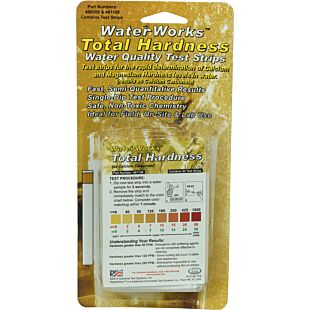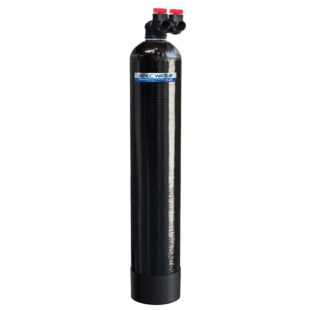
- The TRUTH About America's Water
- Water Pollutants that Cause Illness
- Are Minerals in Water Important for Health?
- Top 5 Drinking Water Contaminants
- Do I Need a Whole House Water Filter?
Benefits of Salt Free Water Softeners And How They Work
What are Salt-Free Water Softeners?
Water softeners are essential appliances that remove mineral deposits from water, particularly the hardness-causing minerals like calcium and magnesium. But is there an alternative to salt for water softeners? Traditional water softeners use salt-based systems to exchange the hard minerals with sodium ions. However, salt-free water softeners provide an alternative solution by utilizing innovative technology to combat the issues associated with hard water without the need for salt.
Salt-Free Water Softeners vs Regular Water Softeners
So what is the difference between a salt free softener and a regular softener? The primary distinction between saltless water softeners and regular softeners lies in the method they employ to tackle hard water. Traditional softeners use an ion exchange process, where resin beads attract and trap the hard minerals, replacing them with sodium ions. On the other hand, salt-free water softeners do not remove the minerals from the water but rather transform their structure, rendering them unable to form scale or adhere to surfaces.

How Salt-Free Water Softeners Work
Do salt free water softeners really work? Though they use different methods and technologies than traditional softeners, they are still highly effective in removing hardness causing minerals in your home water.
While regular water softeners use salt to remove hard minerals, no-salt water softeners require alternative technologies such as template-assisted crystallization, magnetic fields, or catalytic media to modify the behavior of the hard minerals. These methods alter the crystalline structure of the minerals, preventing them from precipitating and forming limescale buildup. Let’s look at each part of a salt free softener and how it works.
Pre-Filtration: Incoming water passes through a pre-filter to remove larger particles and sediments.
Catalytic Media/Magnetic Field: The water then flows through a catalytic media bed or a magnetic field, which alters the mineral structure.
Post-Filtration: Optionally, some systems include a post-filter to remove any remaining impurities before the water is distributed for use.

Benefits of Salt-Free Water Softeners

No Need for Salt: Salt-free water softeners eliminate the need for purchasing, storing, and adding salt to the system. This saves both time and money, making maintenance hassle-free.
Environmentally Friendly: Using a water softener without salt means it does not discharge brine into the wastewater. Salt free water softenrs are therefore considered more eco-friendly and do not contribute to increased salt levels in the environment.
Retain Essential Minerals: Unlike traditional softeners that remove beneficial minerals along with the hardness-causing ones, salt-free water softeners retain essential minerals like calcium and magnesium, ensuring healthier drinking water.
No Slippery Residue: Softened water from traditional systems can leave a slippery residue on skin and surfaces. With salt-free water softeners, this issue is eliminated, resulting in clean, residue-free water.
Easy Installation: Salt-free systems are often compact and straightforward to install, requiring minimal space and no electricity.
Why Would I Need A Water Softener In The First Place?
When making the decision if a water softener is right for you – salt-free or traditional – it’s important to understand why we need water softeners in the first place. Hard water can cause a variety of problems both in your home and health.
Hard water is known to leave a residue of minerals – often referred to as scaling or buildup – on your clothes, appliances, dishes, and even your skin and hair. You may notice water stains, dingey clothing, or dry and flaky skin. Many people often try to combat these issues by increasing the amount of soap and solvents they use in their everyday water routines. This results in increased waste and unnecessary overexposure to the synthetics often present in household products.
Hard water can also cause damage over time to pipes and other inner workings of your home plumbing system and appliances. Hardness often has a negative effect on the overall taste of your water as well. For more on the differences between hard and soft water, explore our article Hard Water vs Soft Water.
Test the hardness of your water with the APEC Total Hardness Testing Kit, to see if the hardness of your water could be to blame for some of the issues you notice in your home.
Things to Consider When Choosing a Water Softener
Water Hardness Level: Determine the hardness level of your water supply to choose the appropriate water softener system.
System Capacity: Consider the daily water usage in your household to select a system with adequate capacity.
Space and Installation: Assess the available space and installation requirements to ensure compatibility with your home.
Maintenance: Understand the maintenance needs of the system, including filter replacements or media regeneration.
Warranty and Support: Look for a reputable brand that offers a warranty and reliable customer support.
Why APEC Salt-Free Water Softeners Make the Difference
As the #1 manufacturer of home water filters in the U.S., APEC offers a range of reliable and efficient water softener products. With our advanced technology and commitment to excellence, you can trust APEC to provide you with the best water-softening solutions for your home.




